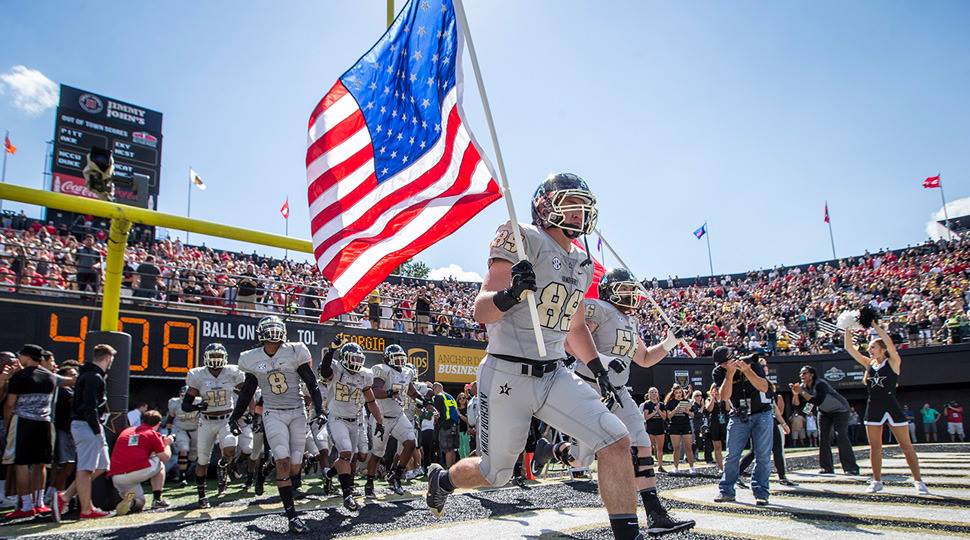
Vanderbilt Stadium will offer alcohol sales in public areas beginning this season, providing Vanderbilt University a new revenue source as it prepares to address facility challenges.
On Wednesday, Vanderbilt announced plans to implement alcohol sales throughout Vanderbilt Stadium—a new policy that takes effect with the football program’s August 31 season opener against Georgia. In this case, Vanderbilt is taking advantage of a new SEC policy that allows for stadium-wide alcohol sales to be implemented at the discretion of each conference institution. Other SEC schools have announced similar plans, but in Vanderbilt’s case, university officials are emphasizing that stadium-wide alcohol sales could yield a new revenue source for potential facility upgrades.
“Not only will this game day initiative enhance our fan experience, it will provide additional resources to invest in our mission of helping our student-athletes succeed on and off the field, such as through facility enhancements and in other areas,” Malcolm Turner, Vanderbilt vice chancellor for athletics and university affairs, said in a press statement.
When it comes to long-term planning for Vanderbilt athletic facilities, the football program faces some well-documented challenges, including the present state of Vanderbilt Stadium. Vanderbilt Stadium underwent its last major renovation in 1981, meaning that its condition lags well behind other college football facilities, especially those in Vanderbilt’s hyper-competitive SEC.
For years, there have been questions about how Vanderbilt will address this issue. A new stadium appeared to be in the cards at one point, with university officials exploring the idea of moving the football program into a proposed Nashville MLS stadium at the city’s fairgrounds. However, the university announced in September 2017 that it would not move football into a planned Nashville MLS stadium, and that facility is moving forward without plans to accommodate college football on a full-time basis.
There has been no serious discussion since of a new stadium—at least publicly—but a firm plan for a renovation has also yet to surface. Turner, though, has acknowledged that enhancing facilities for the football program will be a priority. That includes short-term upgrades intended to address smaller, but immediate needs at Vanderbilt Stadium, with a longer-term facility plan likely surfacing down the road.
It seems likely that other revenue sources will have to come into play when mapping out the funding plan for a long-term solution to Vanderbilt’s stadium situation, but the decision to begin implementing alcohol sales on a venue-wide basis should help in a few respects. With the new conference policy in effect, Vanderbilt is taking immediate advantage of the opportunity to open up a revenue source, while keeping pace with some SEC rivals as they implement new alcohol sales policies.
For now, the announcement of expanded alcohol sales—which include domestic and imported beer options—applies to Vanderbilt Stadium. According to Wednesday’s announcement, any potential implementation of expanded alcohol sales at other university facilities will be determined in the future.
Image courtesy Vanderbilt University Athletics.
This article first appeared in the weekly Football Stadium Digest newsletter. Are you a subscriber? It’s free, and you’ll see features like this before they appear on the Web. Go here to subscribe to the Football Stadium Digest newsletter.
